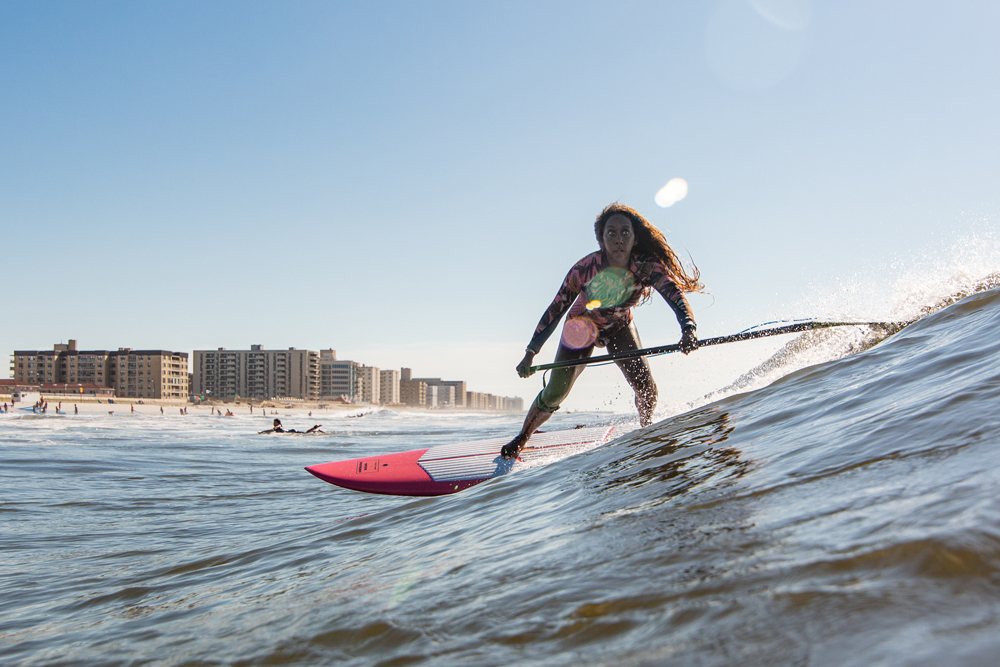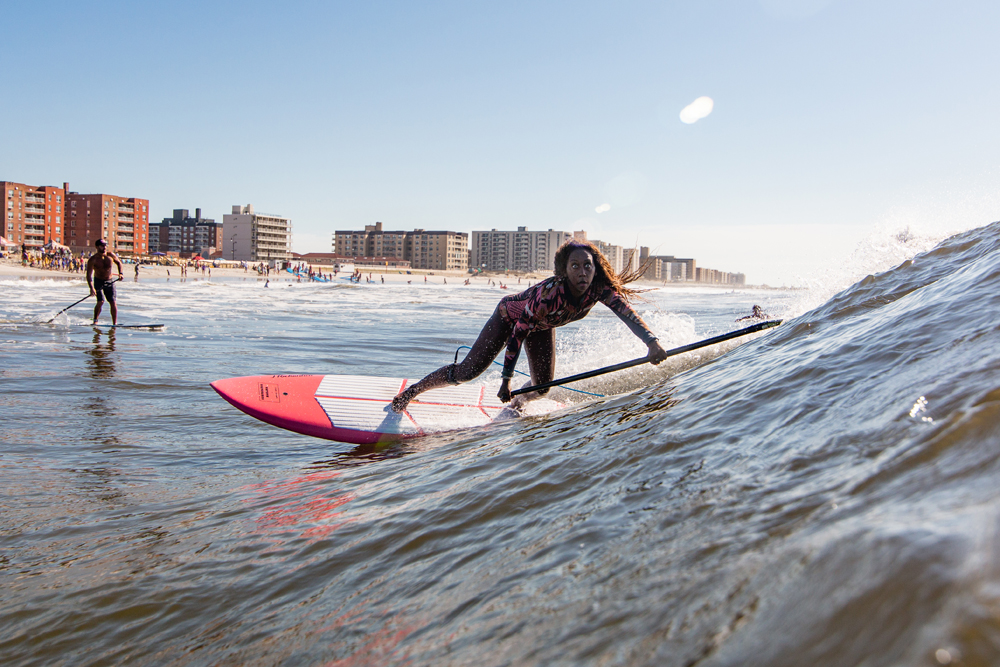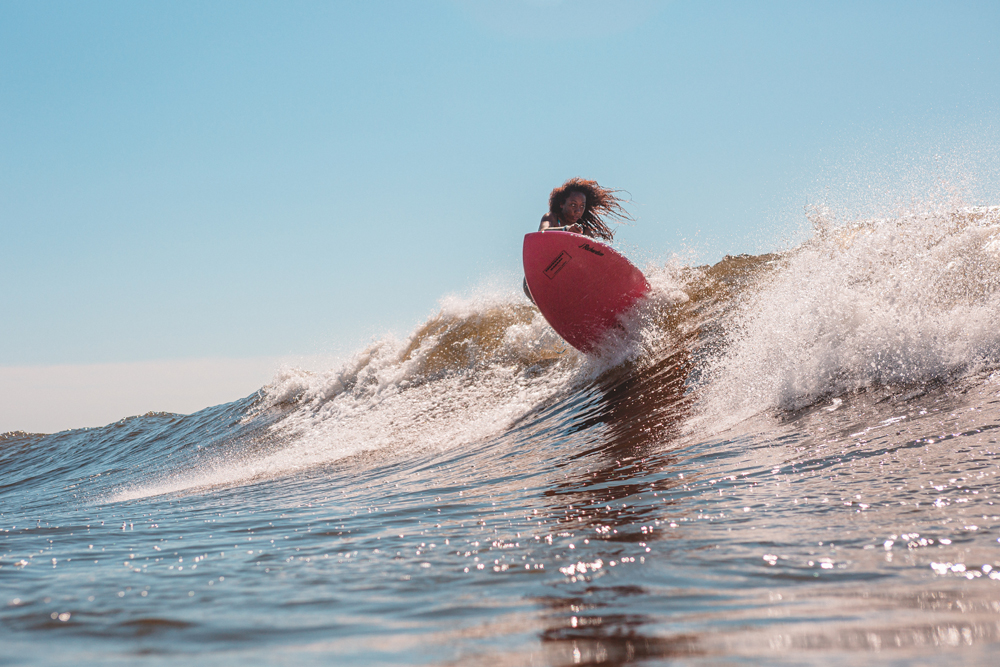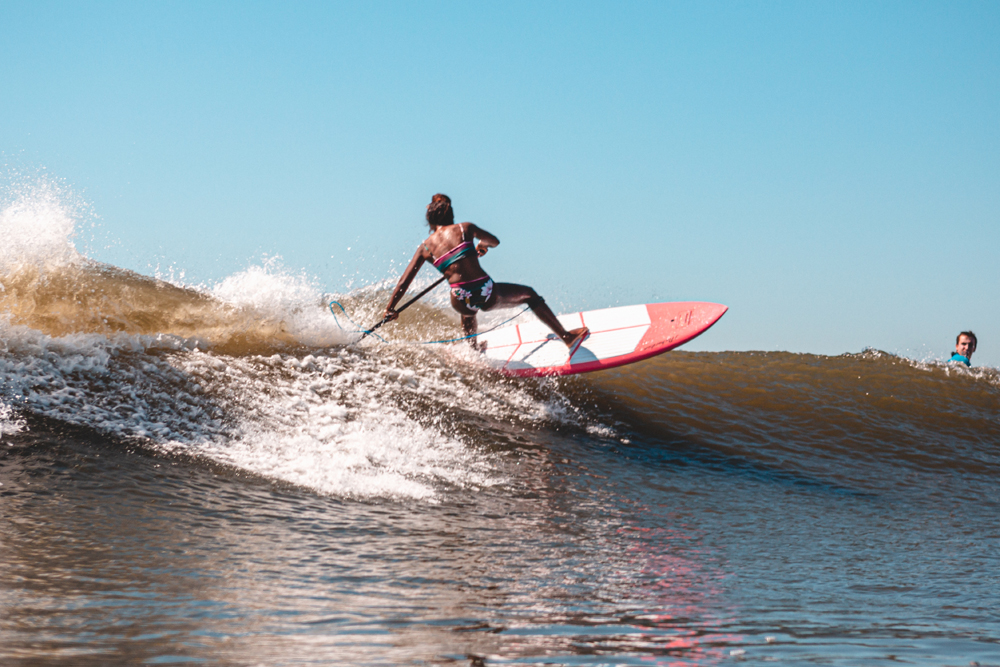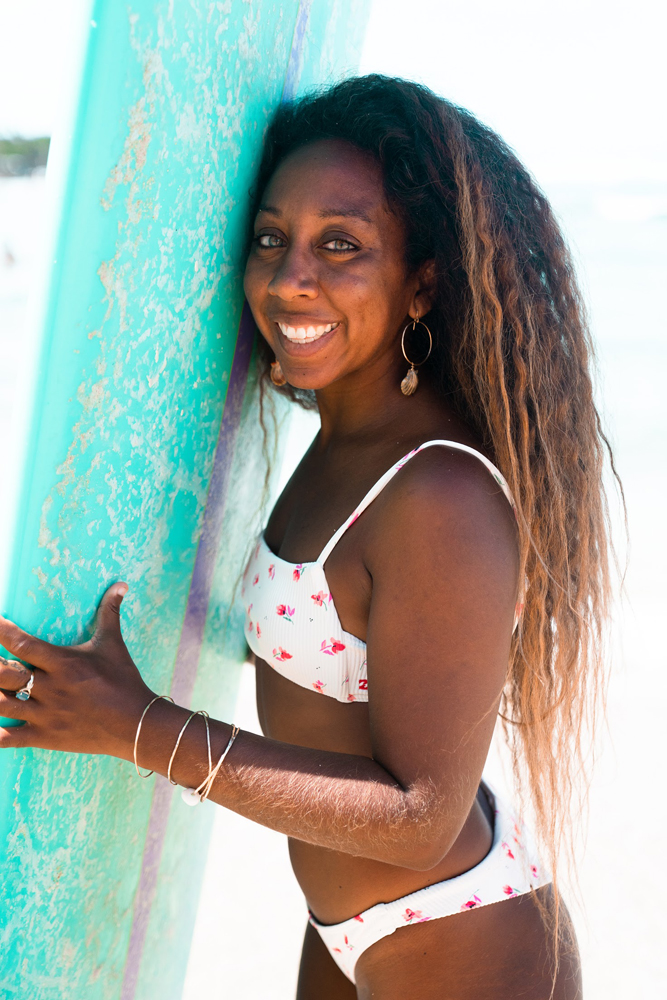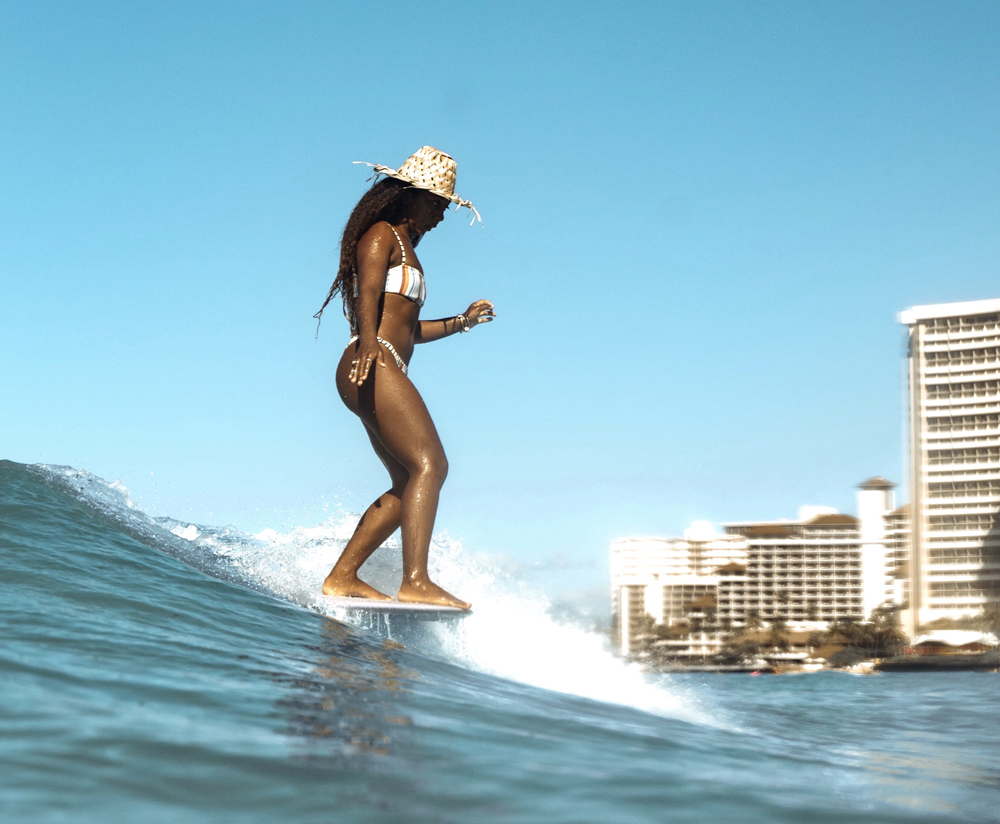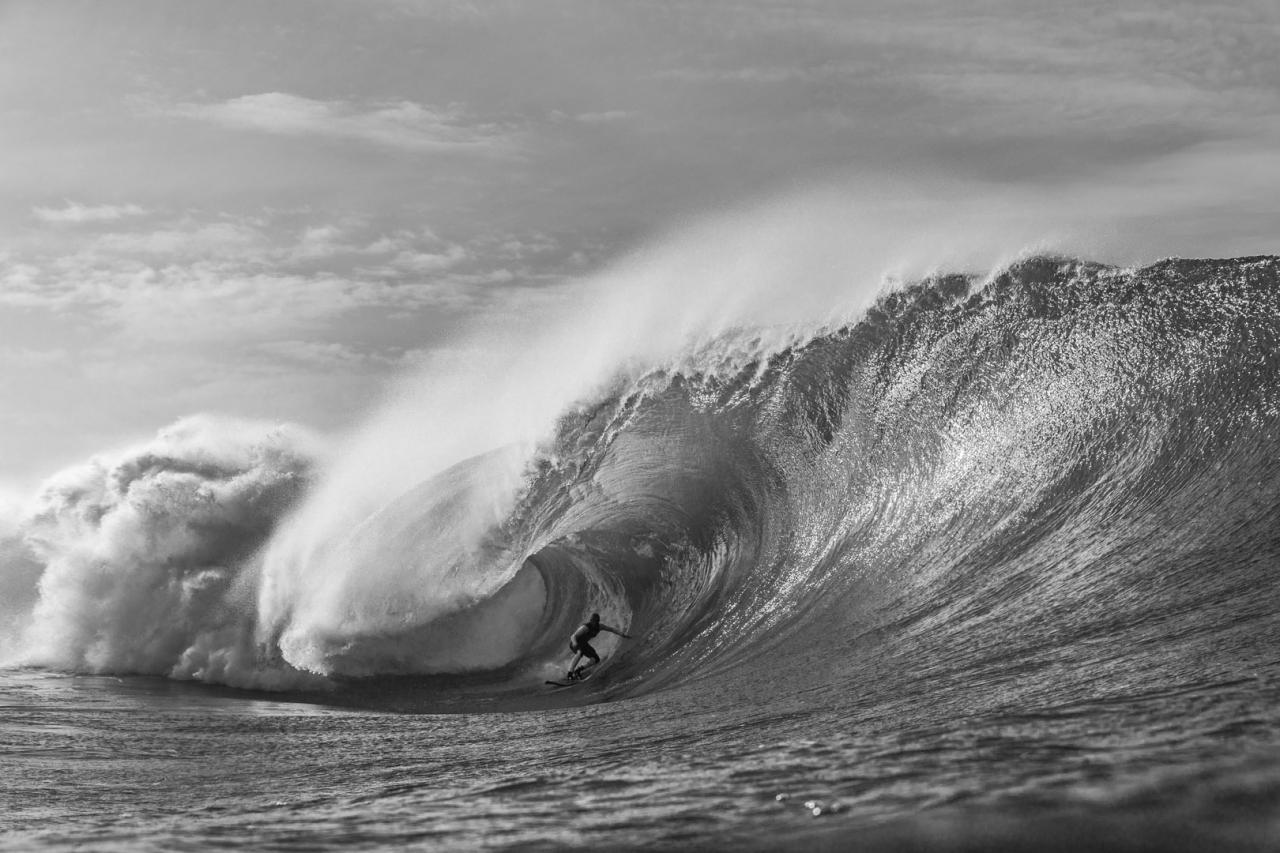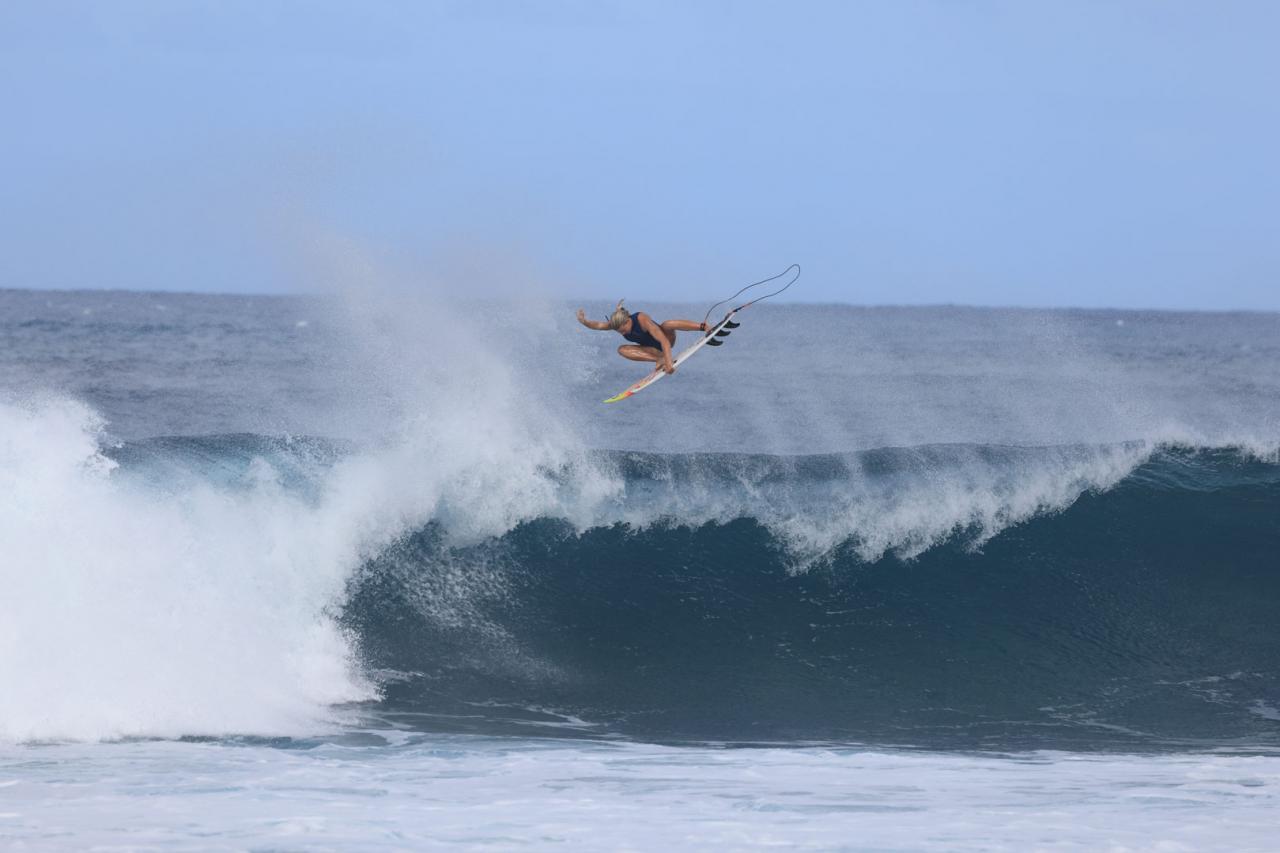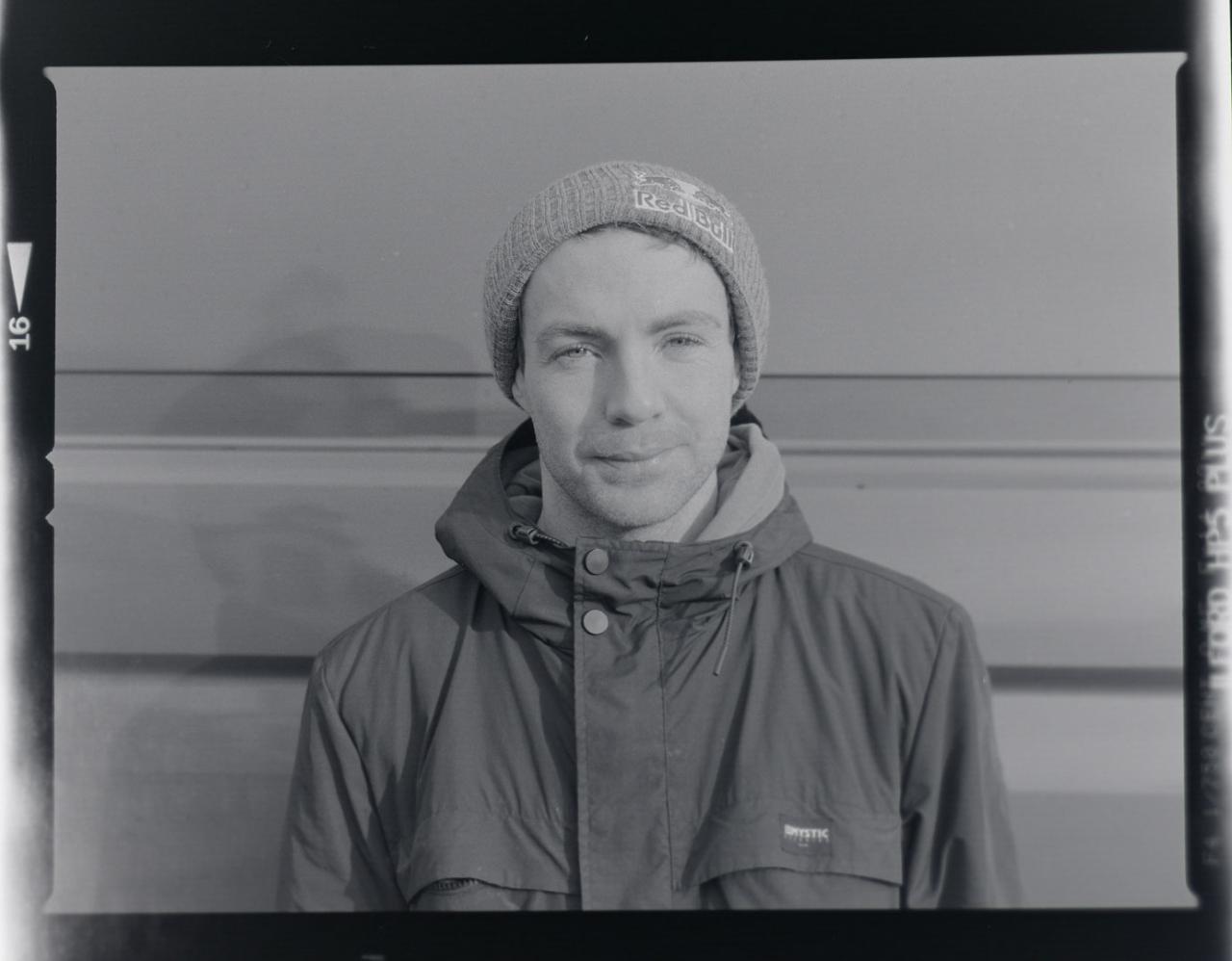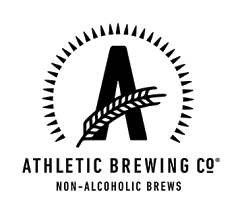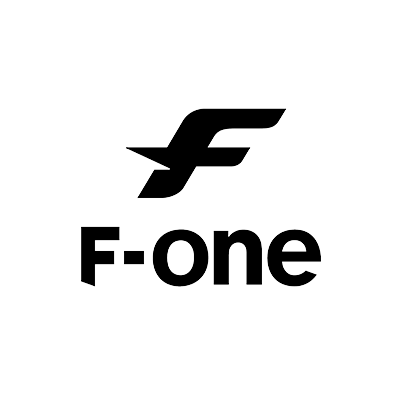Defining My Own Lines
Q & A with Dominique Miller, Pro athlete WSL & APP World Tours
Standup Journal: Tell us a little about your background. Where are you from?
Dominique: My name is Dominique Miller. I am an Afro-Latino professional surfer who competes on both the APP Stand Up Paddle World Tour and the WSL Longboard World Tour. I live in Honolulu, Hawai’i and compete for Hawai’i in surfing.
SJ: What other activities do you enjoy when you're not in the water?
Dominique: A few activities I enjoy outside of surfing are swimming, diving for shells, and going to the gym to train. I make ocean inspired jewelry on the side so I really enjoy diving for shells to use in my pieces. I also find that diving and swimming are so relaxing and a great way to cross train. I go to the gym 2-3 times a week as another way of cross training and getting more strength and mobility for surfing.
SJ: We've spoken about your multicultural background. Can you explain about how your ethnicities have shaped you into the person you are today? Give detail if you can.
Dominique: I am half African American and half Mexican American. Growing up as a biracial child was not easy. At times I struggled greatly with it; I never quite felt like I fit in anywhere. I found that due to this I became more introverted and primarily focused on myself and the things that I liked to do. This included watersports and competing. Through competing I have been able to find a sense of self worth and happiness. Competing and doing well gave me the goals and discipline to do better, and it is in the competitive arena that I feel the most accepted.
I am also able to connect to people through my travels and social media channels, to find more like-minded individuals who have lived similar situations. I think the struggles I had growing up shaped me to be very resilient and determined. Overcoming these difficulties also gave me more confidence to share my story with other black and brown skinned people who understand the challenges of being biracial.
SJ: As a competitor on both the APP and WSL World Tours, how does being a Black-Mexican woman impact your presence on the tour? What is your experience?
Dominique: Being a biracial athlete on tour with both the WSL and APP has been very good for the most part. I first started competing on the APP StandUp Paddle World Tour. I was actually very nervous about being accepted by my peers because the tour was predominantly Caucasian. At my very first contest I found that I was welcomed with open arms and had no problems at all with discrimination or feeling out of place. Particularly, I remember Candice Appelby and Sophia Bartlow really making me feel welcome and super comfortable.This was also the first time that I saw more athletes from other countries and more brown skin women from Brazil and Mexico competing. Unfortunately I was knocked out of the competition pretty early, but I remember feeling so inspired by these women and by how amazing their surfing performance was. It made me determined to do better and to be better. The more I competed on tour, the more I got to really know these women and become friends with all of them, the more it felt like a strong sisterhood and community.
Longboarding on the WSL Tour was a bit different because I started competing in WSL events in Hawaii where I competed against predominantly Hawaiians, who are people of color, or POC. Also I live here, so I instantly fit right in and it felt like just another day of surfing at home. When I started to travel and compete for the WSL, I again noticed more women of color competing so I felt comfortable. Yes! More women who look like me! The more I compete on both World Tours I feel a sense of wanting to do well, not only as a representative of POC but to inspire young athletes, both boys and girls, to show them that it’s possible to compete at such a high level. I also want the Tour organizers to see that dark skinned surfers are equal in performance to their Caucasian counterparts and can win big events. Hopefully, Tour organizers will make a bigger push to try and find ways to diversify and bring more inclusion into the sport of surfing worldwide.
SJ: Is it more challenging for Latina athletes or Black athletes to compete on the World Championship level? If so, why?
Dominique: I think it is equally hard for both Latina and Black female surfers to compete on a world championship level. From my experience, I have found that it is not even considered a possibility for either race to surf competitively since so much of mainstream surfing is shown as a “white” sport. These women don’t find themselves reflected in the surf scene, which results in them thinking it’s not a viable sport for them to succeed in. With such a small number of Latina and Black women surfing, this makes for an even smaller percentage of championship level surfers of either race. Also competing on the world tour requires a lot of money for travel, entry fees, and acquiring the appropriate gear. This is super challenging for Black and Latin surfers because who generally don’t make as much money as our white counterparts.
SJ: How can we help build a bridge over that divide? What can we do as a culture? What opportunities could the WSL or APP World Tour offer? What can we as Media Sponsors do to help?
Dominique: I think there are many things that both World Tours can do to help build a bridge over this divide. One would be to include more POC on their social media channels (Instagram, Facebook, TikTok) through diversity of photos and videos. Another systemic change would be to host more regional qualifiers and official stops in countries that are non-white nations, places such as the Caribbean, South and Central America, south east Asia, and Africa. This would give more surfers from those countries an opportunity to compete.
In addition, the Tours could host kids’ lessons or surf days where they bring the community's children together to surf with the pros. This return would inspire young water athletes to continue surfing and give them more knowledge of the ocean, skills from the pros and the hope that a World Title dream could actually become a reality. I also think additional media platforms hosting POC articles and cover shots for magazines would be enormously helpful, since the media plays a huge role in how athletes of culturally diverse backgrounds see themselves. If media outlets really pushed for more diversity in representation, it would lead to current and future generations seeing themselves represented and encouraging them to participate and feel welcome within the surf industry.
SJ: What is your biggest goal?
Dominique: My biggest goal is to one day be a world champion in either surfing or stand up paddle surfing. I have been working so hard these last few years to reach this life long dream. I absolutely love competing and enjoy trying to get better. Winning a World Title would be the ultimate achievement. I also think that if I could win a world championship, I would inspire many more young people to get out and surf. It would show them that it is possible to be a pro surfer if you are a POC and we can all accomplish great things within this sport.
SJ: Who has inspired you the most?
Dominique: No single person has inspired me the most; I’ve been fortunate to have learned from many. I draw inspiration from athletes in both the stand up paddle and longboard world tours. The people I look up to the most are the ones that are humble, stylish (within surfing) and hard workers. I take a little piece of what I like best from each of my favorite surfers and incorporate it into my own style. One day I want to be my own inspiration and pave my own path within the surf industry.
SJ: You've said to me, "A flag doesn't define who you are." How do you define yourself?
Dominique: When I compete, I not only represent Hawai’i but African Americans, Mexican Americans, biracial people, people that came from a poor economic status, female athletes and the list goes on. In the past I’ve been told I can only represent the black athlete or the Hawaiian athlete or the Mexican woman athlete because of limited thinking. I kindly tell them no, that I represent a broad spectrum of people. I have grown up with such a diverse upbringing that has shaped me into who I am today. I draw a lot of strength and courage from my background and use it to pursue my goals and dreams. I refuse to let anyone set any limits on me or tell me who I am or what I can stand for, cultural or otherwise.
SJ: Any words of wisdom for up-and-coming athletes who struggle with the same hurdles you've managed to overcome in order to find their place in the competitive water sports arena?
Dominique: My advice for upcoming surfers who may be struggling with some of the same problems I have had is to never give up! Never, ever, listen to the naysayers!
You are brilliant, beautiful, strong, intelligent, unique, and talented in your own way. Don’t ever let someone else steal your thunder. Even if times get tough, know that you are following your heart and that it will all be worth it in the end! Lastly, enjoy the ride. Surfing and competing has taught me so much, given me lifelong friends, taken me across the globe, and offered me some of the most amazing experiences that I wouldn’t trade for anything!

